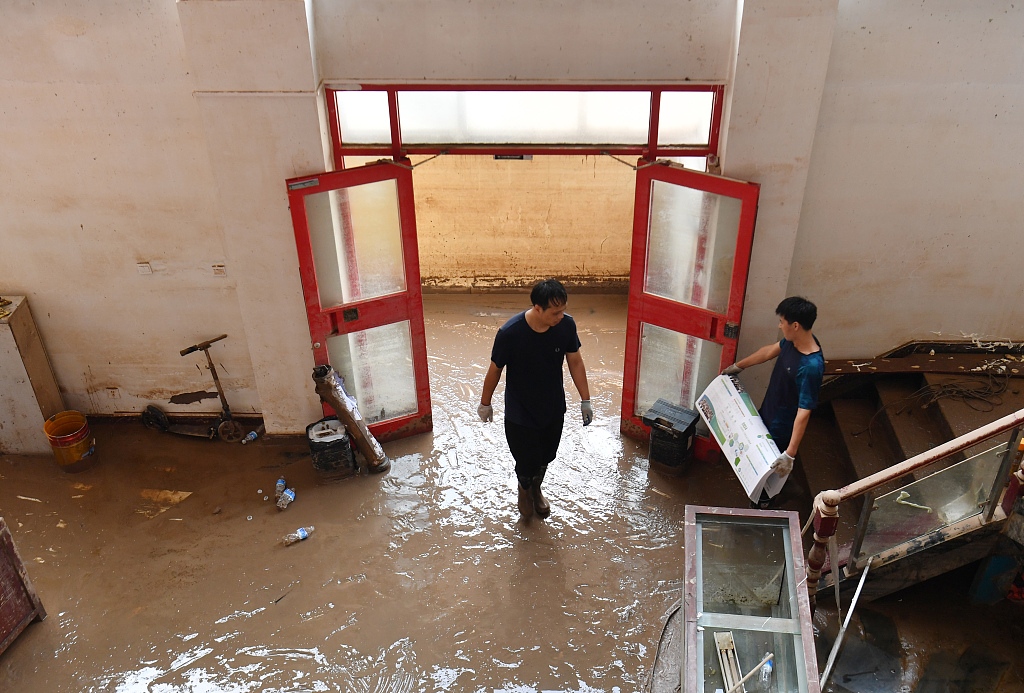North China flood recovery to take 2 years


North China's Hebei province is set to undergo a two-year reconstruction effort following the recent downpours and devastating flooding that led to 29 deaths and 16 still missing, according to senior local officials on Friday.
"We will make concerted efforts to rebuild our homes together step by step," Zhang Chengzhong, head of the province's flood control and drought relief headquarters, said at a news conference on Friday, adding that rescue workers are still searching for the missing people.
Zhang, also vice-governor of Hebei, said that all students affected by the flooding will return to school as scheduled for the upcoming semester, while people relocated from flood-prone areas will either return home or relocate to new homes before winter arrives.
Before the next flood season, which usually runs from July to August, the province will complete reconstruction of damaged or ruined flood-control public works, and all reconstruction will be finished in time, he said.
The province will also carry out analysis of causes behind the severe damage in order to enhance the drainage and waterproofing systems, said Jia Letang, deputy head of the Hebei Development and Reform Commission, during the news conference.
During reconstruction work, flood control projects will be planned reasonably in order to improve the infrastructure's anti-flood effectiveness and avoid repeat disasters, Jia said.
Triggered by Typhoon Doksuri, Hebei suffered heavy downpours from July 27 to Aug 2, and during the period, the amount of rainfall in Hebei was equivalent to 27.5 billion cubic meters of water.
As of Thursday, more than 3.8 million people in 110 county-level regions in the province were affected, and more than 1.7 million were evacuated with most relocated to temporary shelters.
The flooding also destroyed a number of power, water, transportation and communication facilities. "Most of these have been repaired and the rest are in the process of rapidly returning to working order," Zhang said.
The province's direct economic losses from the flooding reached 95.8 billion yuan ($13.2 billion).
Among flood recovery measures, the province began using seven flood detention basins, including Langouwa and Dongdian, successively since earlier this month.
"The number of detention basins put into use is the most since 1963," Zhang said, adding that the measures have effectively reduced pressure on downstream waterways.
As of Thursday, the basins have helped divert and store 4.12 billion cubic meters of floodwaters, submerging a maximum area of 1,399 square kilometers, said Cui Zhiqing, head of the province's water resources department.
Flood detention basins are part of the province's flood control system together with reservoirs, river channels and dikes, Cui said, adding that Hebei has 13 such basins.
Currently, the water levels in these basins are receding and the process is speeding up.
Cui added that people will then be compensated according to regulations for their losses for such assets such as crops, animals and property damaged or lost in the disaster.
"All the things I have protected over the years are gone, and now I need to start from scratch after the flooding," said local Sun Zhan on Thursday, staring at his destroyed home in Wanghaizhuang village, Zhuozhou city — one of the hardest-hit places in Hebei.
Sun harvested over 6,000 kilograms of wheat and had spread them out to dry in his yard before the floodwaters arrived.
He sold them on Thursday, for less than 0.8 yuan per kg, as feedstuff for cattle. "I could sell them for about 2.8 yuan per kilogram if they were not soaked," the 46-year-old farmer lamented.
During the flooding, he also lost his home, which collapsed, and he has reported his losses to the local government, which is collecting the information for future compensation.
"But we still have hope as long as we are alive," Sun said.
- Intl forum for young space scientists held in Macao
- Global experts hail China's commitment to preserving Tibetan medicine
- Visitor arrivals in Macao up 30.1% for first nine months of 2024
- Dinosaur fossils found in Hong Kong for 1st time
- Chinese researchers build autonomous underwater vehicle for deep-sea microbial sampling
- Highlights of Xi's remarks during 16th BRICS Summit in Kazan, Russia





































